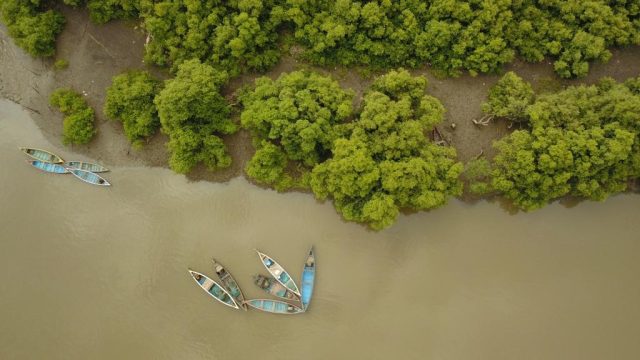JSW Foundation, the $23 billion JSW Group’s CSR arm, has made great progress in its ongoing mangrove restoration project in Raigad region. Currently, approximately 2 million saplings have been planted, with a survival rate of more than 70%, spanning 380 hectares of land.
Mangroves are important salt-tolerant forest ecosystems found in tropical and subtropical intertidal zones around the world. These habitats, known for their tremendous biodiversity, perform an important function as reservoirs for numerous plant and animal species. Mangroves serve as a natural barrier between land and marine ecosystems, acting as a protective barrier against coastal disasters such as hurricanes and tsunamis. These environments, dominated by mangrove trees and shrubs, give substantial economic resources to coastal communities as well as a variety of other benefits.
Since 2016, JSW Foundation has been working to cultivate this bio-shield between the water body and the adjacent land, which would: Prevent land erosion and deterioration of soil quality, so halting the loss of fertility.
Encourage the establishment of habitat for various fauna species such as fish, prawns, mollusks, crabs, reptiles, and birds.
Mangrove Restoration Project
One of the most distinctive characteristics of this initiative is the use of a ‘Livelihoods’ approach to mangrove restoration. Through composite farming, pisciculture, home-based chicken farming, mangrove seedling plantation and delivery to nurseries, and the development of environmentally friendly items such as jute bags, the project has created alternative livelihoods for nearby coastal populations.
Through diverse initiatives like as pisciculture, crab fattening, home-based poultry farming, and composite farming, the project has also fostered livelihood diversification. These efforts have not only provided new revenue streams, but have also empowered local communities to pursue long-term economic potential.
The successful completion of this restoration project emphasizes the significance of community involvement and sustainable livelihoods in environmental protection. The combined efforts of all parties have not only helped the mangrove ecology but also the lives of local populations.
“The ongoing mangroves restoration and conservation project at Dolvi, Taluka Pen in Raigad district of Maharashtra state is a reiteration of our commitment to the environment and people,” said Mr. Ashwini Saxena, CEO of JSW Foundation. The mangrove restoration project’s impact has been quite positive for us. Environment management must be intimately related to the current as well as long-term subsistence needs of the surrounding communities, as well as the historic symbiotic relationship that must be maintained.”
To raise awareness about mangroves, the Foundation actively observes World Mangroves Day on July 26th each year. Sensitization sessions, drawing competitions in schools, internal communications on the importance of mangroves, and meetings with Mangroves’ Cell representatives have been key activities over the last five years to raise awareness and promote sustainable management and conservation of mangroves. These interventions attempt to restore mangrove ecosystems, empower local populations, and promote sustainable mangrove resource management and conservation.

